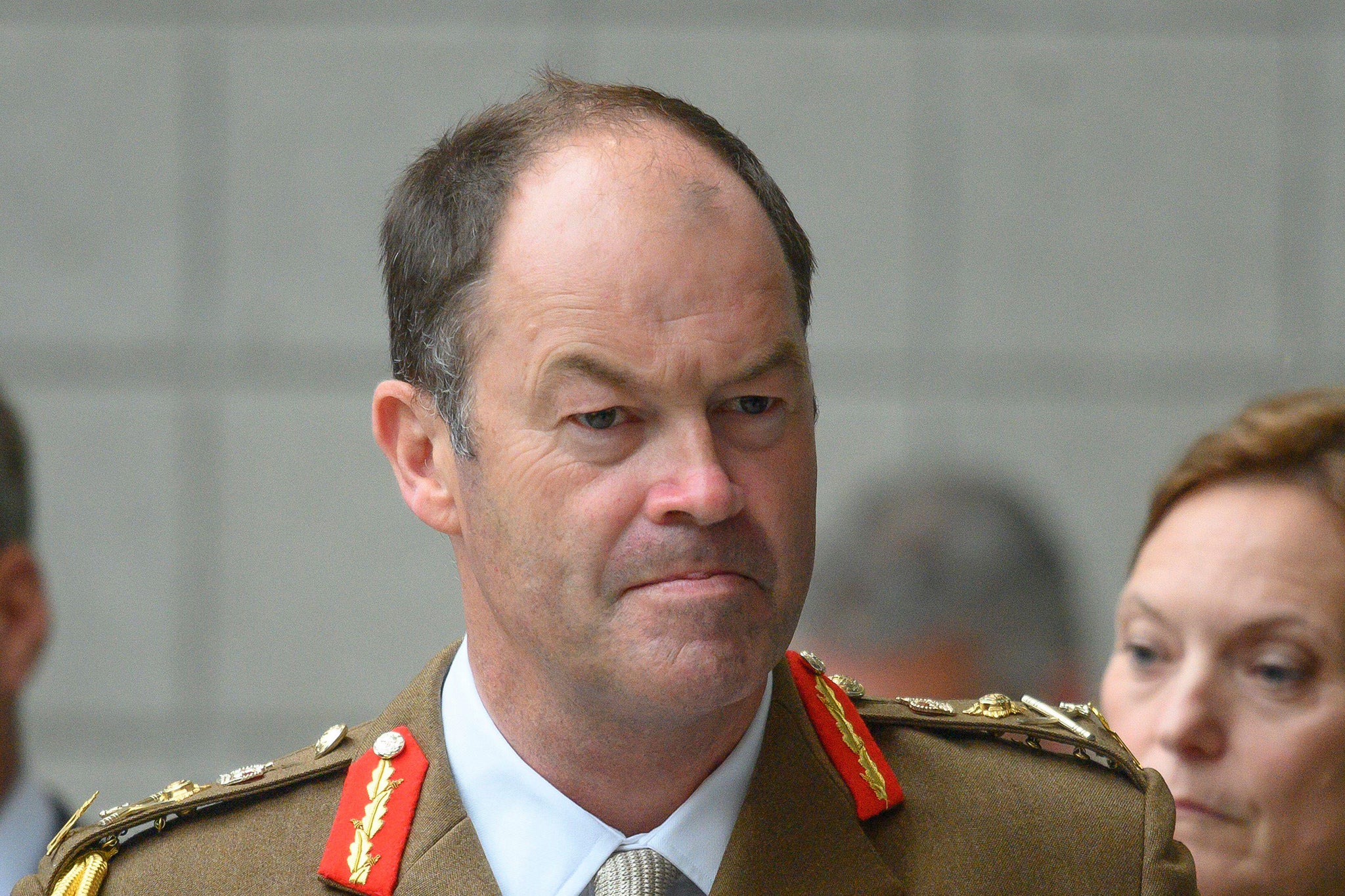Is the West really looking at a Third World War?
As the head of Britain’s army says the nation must prepare for conflict on a global scale, Sean O’Grady asks if he is right


The chief of the general staff and head of the army, General Sir Patrick Sanders, has given a valedictory address in which he describes the current population of the UK as a “pre-war generation”, and one that must now get ready to take “preparatory steps to enable placing our societies on a war footing”.
A “national mobilisation” against Vladimir Putin’s Russia is the sort of language that would have been unthinkable, if not alarmist or satirical, only a few years ago, but the full-scale invasion of Ukraine and a consistently bellicose stance from the Kremlin has suddenly made such notions mainstream.
What does Gen Sanders mean by ‘pre-war generation’?
Literally that. For about two decades after the fall of the Berlin Wall, the end of the Cold War and the collapse of the Soviet Union in about 1990, the West was able to stop worrying about the medium-term risk of war with the USSR because it had ceased to exist. Western governments soon enough took advantage of the “peace dividend”, partially disarmed and diverted defence spending to private consumption and public services.
Now, the assumption is that war with Russia and/or others may not be far distant. As defence secretary Grant Shapps put it recently: “In five years’ time we could be looking at multiple theatres involving Russia, China, Iran and North Korea. Ask yourselves – looking at today’s conflicts across the world – is it more likely that the number grows or reduces? I suspect we all know the answer – it’s likely to grow. So, 2024 must mark an inflexion point.”
What does he want?
The foundations for “national mobilisation” cannot be, in the general’s view, confined to countries neighbouring or close to Russia, and as a result ordinary people in Britain would, one way or another, end up forced to bolster the UK’s slimmed-down 74,110 full-time regular army, to see off an active threat in Europe.
In Gen Sanders’s own words: “We will not be immune and as the prewar generation we must similarly prepare – and that is a whole-of-nation undertaking. Ukraine brutally illustrates that regular armies start wars; citizen armies win them.”
As the Ministry of Defence hurriedly added, that does not mean the imminent return of compulsory conscription. It does mean that younger citizens would be expected to volunteer in war conditions, that everyone would be required to support a “total war” effort until Russia is defeated.
Is it just special pleading?
Just for a change, there doesn’t seem to be much of that, but every service chief in every country complains about lack of money, equipment and resources. There are few trouble spots – from the South China Sea to Afghanistan – where the British haven’t despatched a force, often in a leading role. Yet defence spending as a proportion of national income has shrunk and the army has shrunk to its smallest size since the Napoleonic wars.
The present government has consistently promised more funding to the services, but it remains at not much more than 2 per cent of national income, less than half where it was during the Cold War. The savings have long since been in effect committed to the NHS, and it is difficult to see how defence spending is going to be boosted in a stagnant economy without some unpopular sacrifices elsewhere.
So what about the UK’s nuclear deterrence?
The existence of vast arsenals of nuclear weapons owned by the superpowers didn’t prevent what were basically proxy wars elsewhere. Nor have they lately deterred aggressive activity by Russia, Iran, China and North Korea. It is perfectly conceivable that any of the present wars in Ukraine and Gaza could spread even further and draw in other powers.
While it still takes some effort of imagination to think of American, British, Polish, German and other Western forces directly engaged in fighting with Russian troops in Europe, it could not be ruled out. Such a war could be fought with conventional weaponry, and wouldn’t necessarily mean a doomsday escalation to nuclear conflict – but the existence of nuclear stockpiles was always what was supposed to prevent conventional wars between the superpowers.
What are the politics of this?
If the Labour Party was still in the grip of the Corbynistas there would be a lively debate about the risks of war and the usefulness of nuclear weapons. As things stand now, though, there is a broad consensus between the two front benches on Ukraine, Gaza and the threats posed by Mr Putin. Less reassuringly, neither main party seems to want to cough up for a bigger defence budget.
So, will there be a war with Russia and its allies?
It’s not inconceivable. The West – Europe, North America, Japan, South Korea, Australia and the like – would have superior technology and fundamentally bigger economies, but the Russians and Chinese would have a significant advantage in sheer numbers and size of the industrial base. This is more or less the lesson of the current conflict in Ukraine.
Aside from the possibility of mutually assured destruction, and the loss of millions of lives, a Third World War would wreck the world economy and extinguish any hope of saving the planet from irreversible and unpredictable climate change. So no wonder General Sanders is worried.






Join our commenting forum
Join thought-provoking conversations, follow other Independent readers and see their replies
Comments